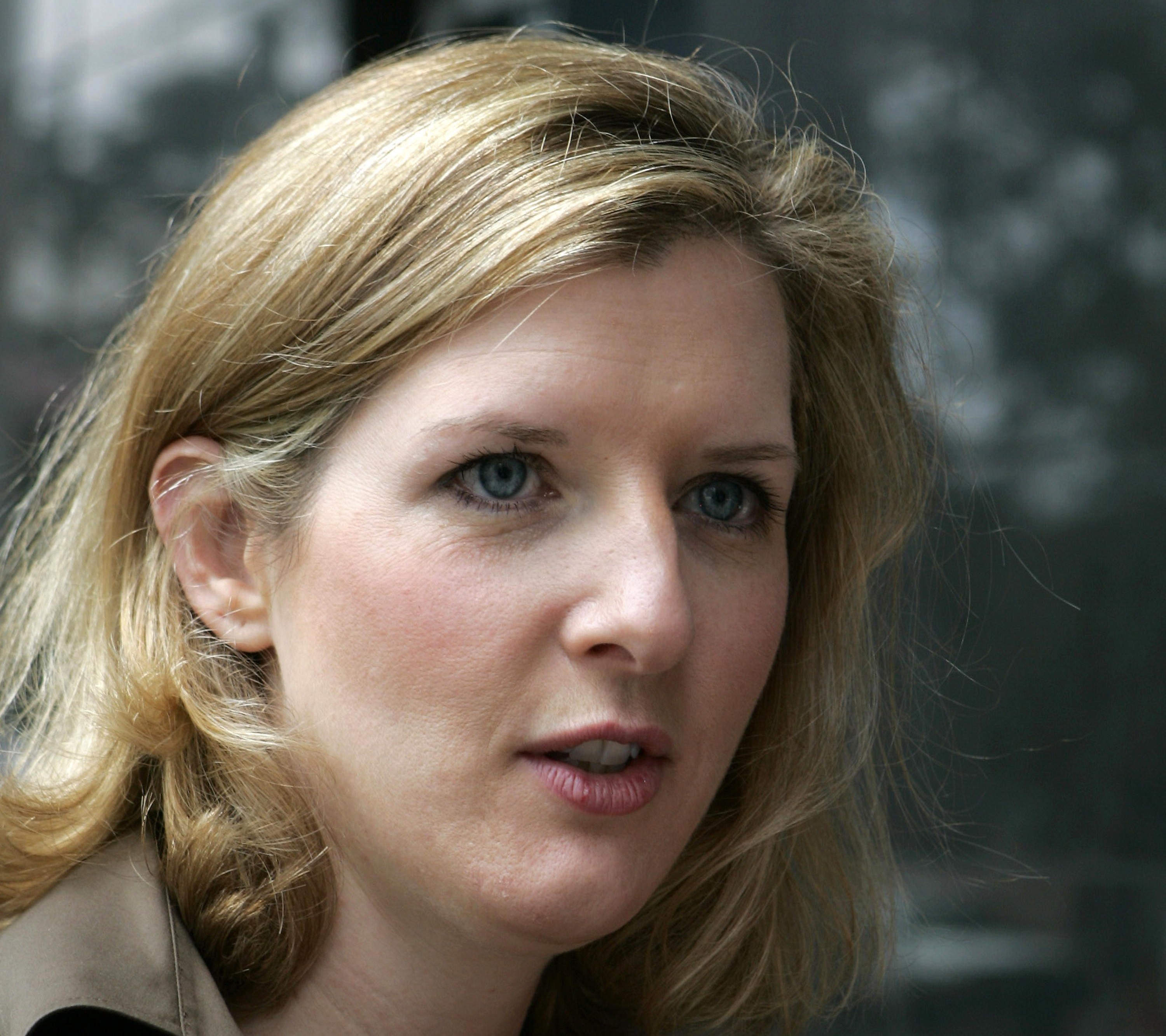WASHINGTON (AP) — President Barack Obama had gone to his residence after a difficult week when an urgent email brought him rushing back to the Oval Office. The suspect in the Boston bombings had been apprehended.
Videos by Rare
“They have him in custody, it is white hat,” White House counterterrorism adviser Lisa Monaco wrote chief of staff Denis McDonough. That was reference to the cap that 19-year-old Dzhokhar Tsarnaev was seen wearing in surveillance video that led to his capture.
Soon Monaco was briefing the president on developments.
Elsewhere in the West Wing, Tsarnaev’s apprehension got White House counsel Kathryn Ruemmler thinking about what legal rights the suspect should have. She consulted with the FBI on the legal rationale to initially question Tsarnaev without notifying the suspect of his Miranda rights, to quickly learn whether anyone else was in danger, and she advised Obama on the conclusion not to prosecute him as an enemy combatant.
For Monaco and Ruemmler, the events were another step in more than a decade of teamwork for friends who first met amid the shock and confusion of the Sept. 11 attacks and worked together as prosecutors and at the top levels of the Justice Department.
The Boston bombings were Monaco’s first high-profile test since she replaced John Brennan, the current CIA director, as Obama’s homeland security and counterterrorism adviser.
She was the first to brief the president on an attack that hit close to home for her. Monaco is from the Boston suburbs, she graduated from Harvard and her brother lives near the finish line, but was unharmed.
Monaco kept Obama updated day and night, along with developments in the investigation of possible poisonous letters sent to the president and the Senate, and the explosion that killed 14 in a small Texas town.
Ruemmler, who joined the White House in 2010, has become a trusted member of Obama’s tight-knit inner circle, a rarity in a White House that has proved difficult to navigate for outsiders.
When Obama attended a memorial service in Boston on April 18, Ruemmler went along to keep him prepared to respond to any developments in the investigation. Tsarnaev was captured the next night, and Ruemmler updated Obama on the FBI’s decision to have agents interview the hospitalized prisoner before notifying him of his right to remain silent under the public safety exception.
Ruemmler also advised Obama on the debate over whether to prosecute Tsarnaev as an enemy combatant before a military tribunal. She helped conclude that wasn’t an option because Tsarnaev is a naturalized U.S. citizen entitled to a federal trial.
The issues are familiar for Ruemmler, 42, and Monaco, 45, who for years have been at the heart of the country’s battle against the terrorism threat.
As director of the Justice Department’s national security division for the past couple years, Monaco approved the prosecution and requests for secret surveillance of suspected terrorists. From the White House, she is now responsible for helping determine the targets of drone attacks.
Ruemmler oversees legal strategy on the drone strikes and handling of terrorism suspects at Guantanamo Bay, Cuba, along with every other important legal issue for Obama.
The women have worked closely together since their days as assistant U.S. attorneys in the District of Columbia, where they rose from the entry level of prosecuting misdemeanors to the high-profile Enron Task Force.
They met in a training class along with Ann Petalas, who remains friends with them. She recalls when their instructors’ pages started going off simultaneously early on the second day of class.
Monaco left the room to check what was happening, and returned to announce that a hijacked plane had flown into the World Trade Center, Petalas said. Soon the devastation hit much closer to home.
“We were on the ninth floor, and I remember seeing smoke rising” over Washington, Petalas said. “And we weren’t sure whether it was the Pentagon or the White House at the time.”
But it was clear Washington had been hit, and their office was evacuated in fear the hijackers might target another federal building. Like many people in those cities gripped by terror that day, they took off with no instruction where to go. Petalas said she and Ruemmler fled northwest on foot.
Monaco and Ruemmler declined to be interviewed for this story.
But in a speech on the 10th anniversary of the Sept. 11 attacks, Monaco spoke of the importance of remembering that day “not only as a turning point in history, but as a human tragedy with flesh-and-blood victims, heroes and murderers.”
“The shock and suffering of September 11th left every American asking how could people do something so terrible and how can we prevent it from happening again? For those charged with protecting our nation, it became clear that there was much that could be done to stop another attack,” Monaco said.
She noted that two stumbling blocks to preventing the attacks included information-sharing and coordination between intelligence and law enforcement — something she would play an important role in shaping.
On his second day as president, Obama signed executive orders ordering a review of America’s detention and interrogation policies and the Guantanamo Bay detention facility, whose closure remains an unrealized goal.
Ruemmler and Monaco were among a small group assigned to get Obama’s Justice Department up and running, summoned to the White House Situation Room and asked to start the review process.
“It was just an extraordinary amount of work and it had to be done yesterday,” said Matthew Miller, the Justice Department spokesman at the time. Miller said the women impressed colleagues with their handling of the job. “The national security world isn’t completely male-dominated, but it’s high testosterone as the entire legal profession can be.”
At the time, Ruemmler was the top political appointee at the Justice Department and Monaco was her chief deputy on national security issues, having worked for President Bill Clinton’s attorney general, Janet Reno, and as chief of staff to President George W. Bush’s FBI director, Robert Mueller.
Monaco has been mentioned as a possible replacement for Mueller when he steps down in September; it’s job no woman has ever held.
In 2011, Obama nominated Monaco to direct the national security division, created in 2006 to improve coordination among law enforcement and intelligence agencies against terrorist attacks and espionage plots. She oversaw terrorism prosecutions and took a special interest in strengthening pursuit of the rapidly spreading threat of cyberattacks against U.S. national security interests.
As Monaco was confirmed, Obama promoted Ruemmler as lead White House counsel after she’d been serving as the No. 2 in that office.
Among the many debates she’s weighed in on, Ruemmler was on the winning side of a split among Obama’s advisers over the defense of his health care law before the Supreme Court last year. Some in the White House opposed making the argument that the government could fine people who don’t buy insurance under its taxing powers. Ruemmler was among those who pushed to make that case.
“She and the president talked a lot about it during the consideration of that matter,” McDonough said in an interview. “Kathy with the president took a tough call there — a not uncontroversial call for that matter.”
McDonough said he watched as Ruemmler approached the Oval Office to tell Obama the arguments had won over a majority of justices. Obama embraced her in a hug. “They were both quite elated,” McDonough said.
Ruemmler also helped craft the administration’s response last month to questions from Senate Republicans over the limits of the president’s power in using drones. With Brennan’s nomination being held up over the inquiry, the administration finally replied that Obama does not have the authority to use a drone to kill a U.S. citizen not engaged in combat on American soil.
The answer cleared a block on Brennan’s nomination, which allowed Monaco to take his place. That put Ruemmler and Monaco working side by side, again.
AP White House Correspondent Julie Pace contributed to this report.
Follow Nedra Pickler on Twitter at https://twitter.com/nedrapickler
Copyright 2013 The Associated Press.



